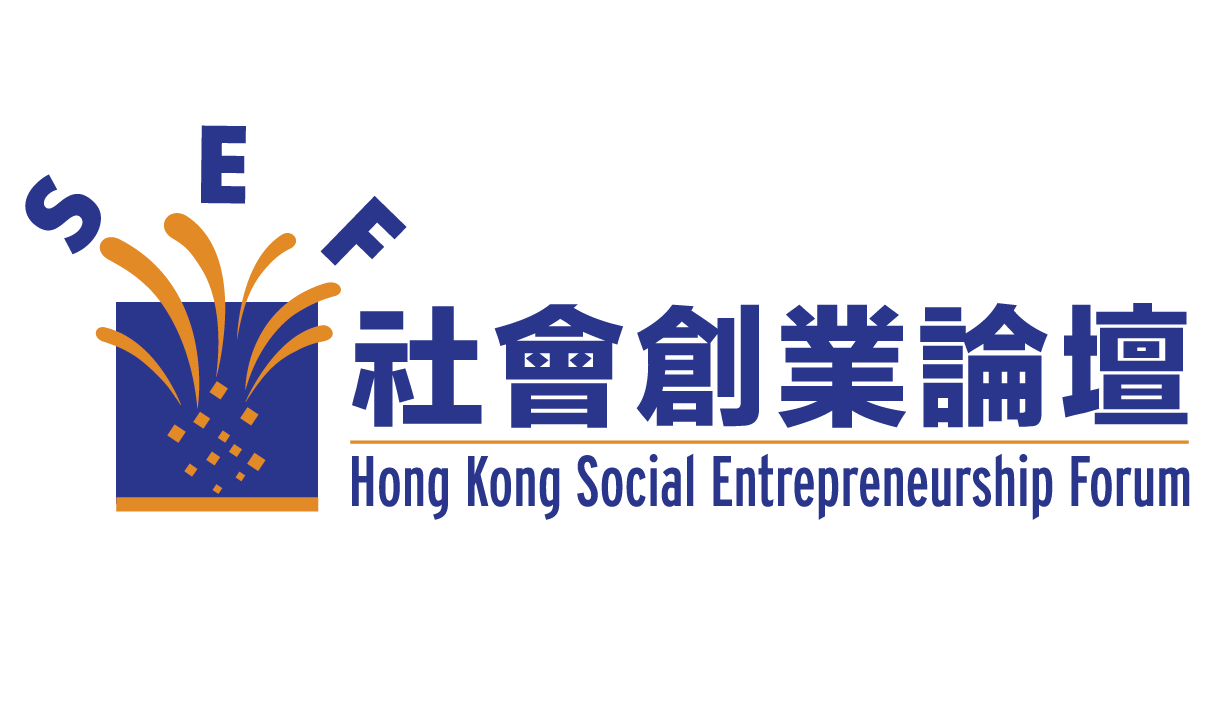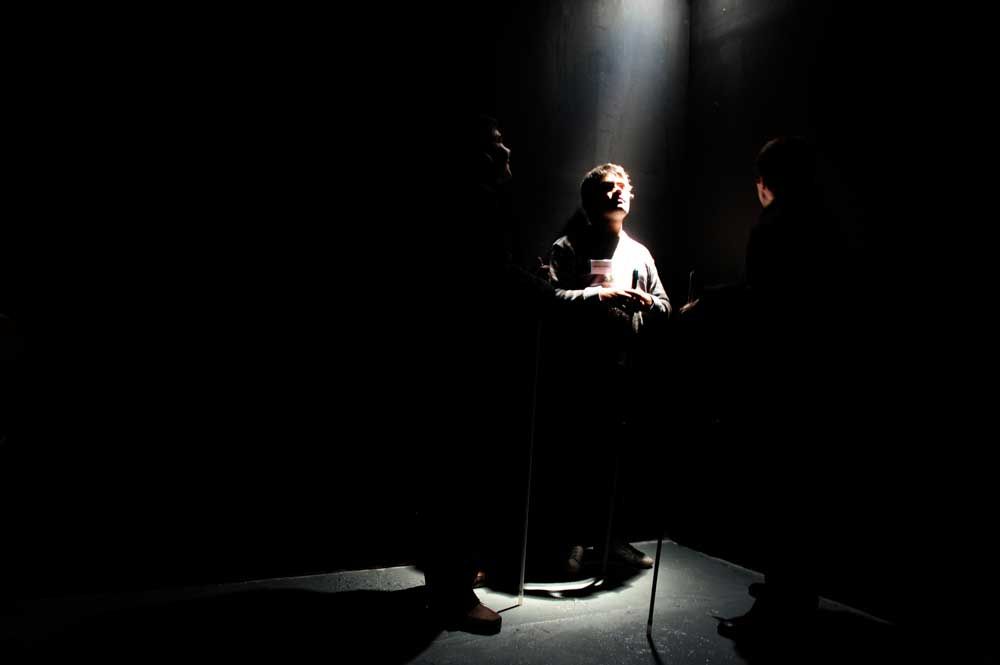Edited by Dr KK Tse
Remember Dialogue in the Dark?
Patrick Cheung and KK Tse are setting up a social enterprise to bring it to Hong Kong and China. The new company is called DID (HK) Ltd. First of all, let us tell you what we are proposing to do, why we want to do it, how we are going about it and when.
WHAT – Dialogue in the Dark is an innovative and unique program designed by the German social entrepreneur Andreas Heinecke.
Fee-paying participants are led by blind guides in small groups through a specially constructed and totally darkened exhibition – where sounds, wind, temperature and textures convey the characteristics of daily environments such as a home, a park, a city street or a restaurant. In the dark, daily routines become a new experience. A reversal of roles is created: sighted people are taken out of their familiar environments, losing the sense they rely on most – the sight. Blind people guide them, provide them with security and a sense of orientation – transmitting a world without pictures. The blind guides open the visitors’ eyes in the dark to show them that their world is not poorer – just different.
This will be the core product that we are offering. Other related products include corporate training, team building and simulation workshops. KK has been invited to receive training in this area in London this October in order to explore ways to design similar products for the local market.
WHY – Patrick, KK and the founding team (including Chong Chan Yau, Yvonne Yeung, and Chua Hoi Wai) are passionate about bringing this program to Hong Kong for a number of compelling reasons:
First, we would like to use this program to effect major changes in people’s perception and attitude towards the blind and the disadvantaged groups in society;
Second, we would like to create a successful social enterprise that could achieve the dual objectives of creating social impact and attaining financial success at the same time;
Third, we would like to prove that a successful social enterprise may not need to have any financial support from the government;
Fourth, we would like to be the first social enterprise in Hong Kong to have an EPO (Ethical Public Offering, i.e. the public can buy the shares of our company when they are impressed by our social mission and financial performance)
Finally, we would like to bring Dialogue in the Dark to mainland China and become a role model on social entrepreneurship.
HOW – We are thinking in terms of three major steps.
First, we will build a temporary exhibition in Hong Kong within the next few months to test the market and refine our product.
Second, we will open the first permanent site in Hong Kong within a year.
Third, we will start planning to bring the program to mainland China cities.
On every step, we would like to generate surplus from our operations. The surplus of the temporary exhibition will be donated to a Social Venture Fund to be set up by Hong Kong Social Entrepreneurship Forum to provide loans to social enterprises in Hong Kong and China.We aspire to become one of the most profitable social enterprises in Hong Kong so that we could support more innovative social ventures.
WHEN – Right now, we are identifying a site for the temporary exhibition and a decision will be made within a week. We plan to open it before the end of the year, ideally from mid-November onwards in order to tie in with the Social Enterprise Summit Week which will commence on November 17. The time is very tight but we would like to make good use of the Summit Week as well as Christmas and New Year holidays.
KK has published an article on this initiative on the Hong Kong Economic Journal.
黑暗中的對話 — 一個能移風易俗的展覽 (信報 12.8.2008)
作者: 謝家駒,社會創業論壇召集人
隨著經濟的發展,傷健人士得到政府及社會人士的關心及照顧也日漸改善。首先是福利,保證他們即使沒有工作能力,也可以得到溫飽及滿足日常需要,進一步是為他們創造就業或半就業機會,讓他們盡可能自食其力,享受工作的成就感及尊嚴。
不過,即使如此,他們仍然要面對很多不平等的待遇,從接受教育、獲得職業晉升機會,以至到使用交通工具,享受休閒設施等,他們都會感受到很多的不便及壓力。
更重要的是,一般人對他們的偏見、成見、嫌惡及迴避,使他們覺得被邊緣化、被孤立,亦阻礙了他們與健康人士的溝通及交流。
在德國這樣經濟發達而福利制度健全的國家,亦只有15%的傷健人士有職業,社會上認為「傷健人不如健康人有價值」的觀念仍然根深蒂固,觀念上的改變完全跟不上社會經濟環境的轉變。事實上,觀念上的改變不容易出現,既不是金錢可以買到,亦不是政府政策可以輕易將之改變。
「黑暗中的對話」
德國一位社會創業者安德亞.海勒奇(Andreas Heinecke)針對這個問題,探索出一個創新的方法,他稱之為「黑暗中的對話」。
海勒奇設計了一個場地,他叫它做「展覽」(Exhibition),有四至五千方呎,裏面包括四個部分:家居、辦公室、公園及市中心,參觀者要付入場費才可進場,在歐洲約為十五歐羅,每次八人一組入場,用大概九十分鐘步過這個展覽場地,場裏完全沒有光線,由一位失明人士當導遊,人們在漆黑中步行、經歷、感受這個旅程,他們會聽到各種聲音,感到微風及溫度,接觸到不同的物體;在黑暗中,日常普通行為變了樣,角色也被轉換了,導遊是他們唯一的依靠。
完成這個旅程之後,參加者對失明人士的世界有了新的體會。令他們明白到一個道理:其實失明人的世界裏,不是他們少了什麼,只是不一樣而已。
參加者以五大類人士為主:個人、企業及團體、家庭、學生、遊客,全部須要預約,在個別展館,輪候時間超過一個月。 調查說明,100%的參觀者在五年之後都不會忘記展覽會和他們導遊的名字,其中90%的人更加關注盲人的生活,52%的人向他們推薦這個活動,34%的人願意再次參加,特別會帶家人及同事來參加。
「黑暗中的對話」由於在德國異常成功,海勒奇接受邀請在其他國家進行巡迴展覽,所到之處,莫不大受歡迎,海勒奇靈機一觸,何不把它發展為特許經營?到今天,已有二十二個國家或地區建立了特許經營的展覽設施,超過五萬名參觀者經歷過「黑暗中的對話」。
海勒奇出生於德國的巴登,大學時主修歷史,並擁有哲學博士學位,曾任職記者,又擔任過德國盲人基金會的副主任。 2000年他創建了「推廣社會公益活動協會」,2003年創建了「交流形式公司」。海勒奇近年獲得了不少獎項,包括「2006年度德國優秀企業家獎」、2006及2005年「德國優秀社會活動家」、2004年「全方位設計最佳獎(日本)」等等,他可以說是歐洲知名度最高的社會創業者。
五個啟示
一、為失明人創造就業機會。「黑暗中的對話」至今直接創造了至少五千多個高質素的就業機會,讓失明人士可以得到穩定的工作及收入。此外,間接地更創造了數以萬計的其他就業機會,因為不少企業的高層管理人員,體驗了「黑暗中的對話」後,對僱用傷健人士有了新的態度及政策,更樂意僱用他們。
二、令人尊敬的職業。「黑暗中的對話」所創造的職業,不是一般為失明人士而設的職位(例如接線生等),而是令人驚訝、尊敬的職位。一方面令這些失明人士能夠發揮他們的專長,提高他們的自信心;另一方面讓他們受到參加者的尊重及敬佩,直接及間接提高了失明人士(甚至其他傷健人士)的社會地位,也讓身體健全的人更珍惜他們擁有的一切。
三、改變人們對傷健人士的看法。從採用「殘障」的形容詞改成為「傷健」本身已經是可喜的現象,但「黑暗中的對話」更深刻地令到參加者體會到其中的意義。它令人們了解到傷健人士有他們自己的世界,有他們自己的特長,不需要別人的同情、憐憫,但需要人家的尊重及友善的對待。「黑暗中的對話」就是希望達至這種移風易俗的影響。
四、以創意來創辦社會企業。「黑暗中的對話」創辦人海勒奇曾服務於德國失明人士協會,但他不是用傳統的方式來協助失明人士,反而別具創意地設計了這個「展覽」形式來讓健全人士去體會黑暗中的世界。
跨國特許經營
五、以特許經營的形式來辦社會企業。「黑暗中的對話」已經證明是可以超越不同國界及文化,在全球不同地方來進行。海勒奇自己的公司是一個社會企業,但他並不要求每一個合作夥伴都是社會企業,例如在美國的合作夥伴就是一家商業機構,但完全認同「黑暗中的對話」的社會使命。不過他始終喜歡與社會企業合作,因為能夠更深更廣泛地發揮社會效果。
目前在亞洲,南韓是第一個開展「黑暗中的對話」的國家,第二個是今年開始的泰國,跟著是明年的新加坡,香港及中國的特許經營權尚在洽商中。
Header Image from Dialogue in the Dark International website

